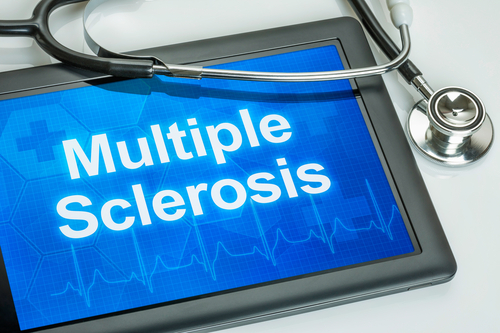Dr. Leist Talks About Causes, Different Types of MS Fatigue (Part 1)
By Kaitlyn D’Onofrio - Last Updated: April 28, 2023Thomas P. Leist, MD, PhD, Professor of Neurology, Director Comprehensive MS Center, Thomas Jefferson University, discusses fatigue among patients with multiple sclerosis (MS), including its prevalence as well as two different types of fatigue patients often experience.
This is part one of a two-part interview. Click here to watch part two.
How common is fatigue among patients with MS?
Dr. Leist: Fatigue is one of the most common symptoms in MS. The longer a person with MS has the disease, the more likely does the individual report fatigue. Even in the earliest phases of the disease, probably somewhere between a third and about 40% of patients do report fatigue.
Fatigue is also a symptom that very often is viewed by the patients as one of the more disabling symptoms. And, particularly obviously it is, to the outside world, an invisible symptom. The fact that fatigue is severe and often limiting in terms of employment is also reflected by the fact that it’s a leading cause of disability in patients with MS.
What causes fatigue in patients with MS?
Dr. Leist: That’s a difficult question. There is no one single cause and there is obviously perhaps a way to sub-divide fatigue in multiple sclerosis. I would look at it as primary fatigue caused by MS, which means it is the MS disease process itself that causes the fatigue. And here very often it’s disconnection or injury to areas of the brain that generate wakefulness.
But primary fatigue may also include the fact that sometimes in MS, reconnections occur so that the areas or the neurons that are not injured have to take on more work. It’s almost like when a company has downsizing, and whoever is left in the company has to do more work.
So you have then a fatiguing of these other elements. This connection and the shift of the functions to other areas that sometimes also can be affected will be part as we can understand as primary fatigue.
Then there are the aspects that perhaps we would look as secondary fatigue, or caused by what MS does to the central nervous system, or the body. Patients with MS can have sleep disturbances, either sleep disturbance because [of] falling asleep, [or] staying asleep is disturbed, but also because they have to get up regularly to go to the bathroom during the night. Obviously each time sleep is disturbed in such a fashion, the restfulness of sleep is not given.
On the other hand, also patients with MS may have difficulty with walking, difficulty with doing exercise, or the physical part of life. And they are tiring out much more quickly. So there is this tiring out, or the fact that it takes much more energy to do menial kind of these everyday things that we don’t even talk about. Patients with MS often report that even for things that we kind of take for granted in life, that they have to plan them. [For example,] when you go to the store, because once you went to the store, you need to take a rest. Then you do pay, for example, bills, or do things that need concentration. You do them in the morning or after rest, because the rest of the day, you’re too tired to concentrate and you’re ineffective. Or perhaps [you’re] also make mistakes when you do these things at different places. So again, thinking of fatigue, I think of fatigue that is caused by consequences of MS and fatigue that is caused by the MS itself. Obviously the patient never reports to us, “This part of my fatigue is X. This part of my fatigue is because I don’t sleep.” So often when we then start to address fatigue in an individual, we try to identify kind of a thread that we can pull on and start to address one reason for their fatigue. Be it depression. Be it, for example, the bladder issues that I mentioned. Be it increasing exercise tolerance, and then obviously also keeping MS with treatment under appropriate control to the degrees that this is possible.







 © 2025 Mashup Media, LLC, a Formedics Property. All Rights Reserved.
© 2025 Mashup Media, LLC, a Formedics Property. All Rights Reserved.